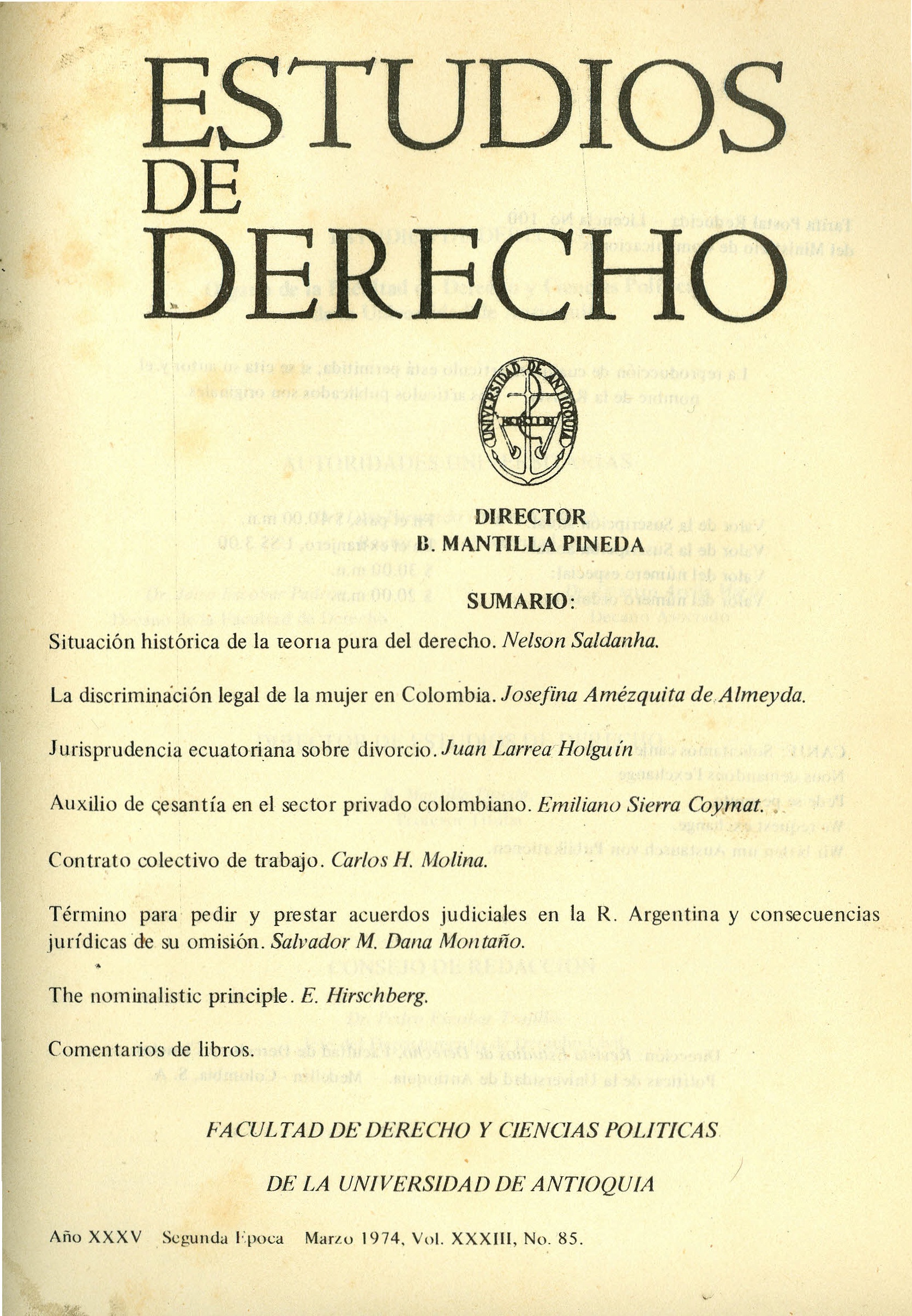The Nominalistic PrincipIe
DOI:
https://doi.org/10.17533/udea.esde.333469Keywords:
nominalistic solution, World War II, law, normalistic principleAbstract
The period since the end of World War II is a period of instability of value of money to a higher or lesser degree.
In law a fictional stability of value of money prevails as the law almost all over the world applies the nominalistic solution according to which the value of money is presumed to be stable not with standíng the objective economic reality.
The justification of the nominalistic solution is a legal theoretical problem to the discussion of which the following chapter is dedícated. However the problem in a period of instability of value of money has enormous practical significance. Changes of value of money through the medium of nominalistic solutíon cause enormous transference of purchasing power from party to party, from creditors to debtors and from class to class.
In modern legal theory three theoretical approaches prevail on the problem of the extent of monetary obligation, namely nominalism, metallism and valorism.
According to the nominalistic principIe the extent of a monetary obligation is defined according to the sum of nominal unit, included in it. The law does not take account of changes of value, neither the external value in its relationships with foreign currencies nor the internal value as measured by its purchasing power. A day after devaluation and on the devaluation day itself, in fact, changes of value of money have taken place, however in the eyes of the law they are disregarded and stability of value of money is presumed.
This solution on the face of it appears to be unjust. Changes of value of money have taken place owing to devaluation and they are almost immediately perceived, when after devaluation a person buys foreign exchange from a bank. But courts of law are adamant, the factual changes of value are disregarded. One of the answers is that a person when making his contract has contracted to receive a certain amount of fungibles and in the same way as the law does not pay attention to the fact that certain commodities or services have increased or decreased in value during the contractual period, the law does not take account of changes of value of money. This answer is unsatisfactory in our opinion and will be further discussed. Money does not resemble commodities and services, and it is something distinct and unique.
Downloads
Downloads
Published
How to Cite
Issue
Section
License
Estudios de Derecho is governed by the following regulation: Political Constitution of Colombia, article 61; Law 23 of 1982, articles 1 and 2; Law 44 of 1993, chapter II, article 6 and chapter IV, article 51; Law 599 of 2000 through which the Penal Code is issued, articles 270, 271 and 272. In addition, the journal is governed by the guidelines of the National Copyright Directorate and the World Intellectual Property Organization (WIPO) for Colombia. Finally, it abides by Rectoral Resolution 21231 of 5 August, 2005, through which the Statute on Intellectual Property is issued.
Authors who publish in Estudios de Derecho continue to retain their rights, however, they should bear in mind that the contents of the journal are under a Creative Commons Attribution-Noncommercial-ShareAlike license. In this sense, The material created may be distributed, copied and exhibited by third parties if they credit it. No commercial benefit can be obtained.










